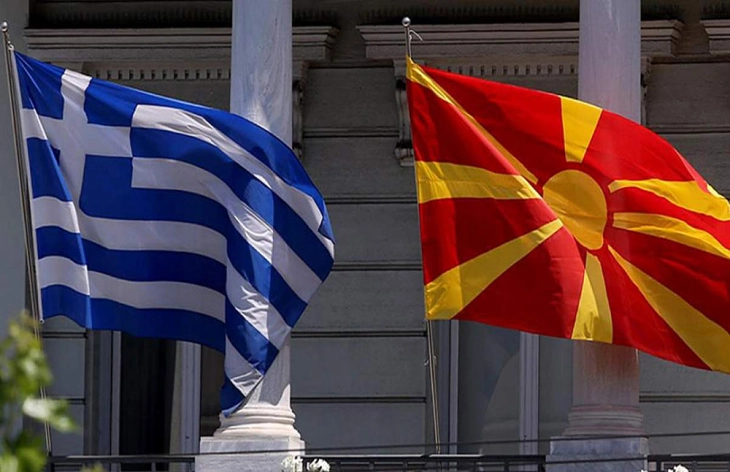Greek media: Prespa Agreement in pre-election debates
- Greek media have been reporting the views as regards the Prespa Agreement and the name use, expressed by the leaders of SDSM and VMRO-DPMNE, Dimitar Kovachevski and Hristijan Mickoski respectively, during Wednesday’s TV debate by citing the state agency ANA-MPA’s news, MIA reports from Athens.

Athens, 5 April 2024 (MIA) – Greek media have been reporting the views as regards the Prespa Agreement and the name use, expressed by the leaders of SDSM and VMRO-DPMNE, Dimitar Kovachevski and Hristijan Mickoski respectively, during Wednesday’s TV debate by citing the state agency ANA-MPA’s news, MIA reports from Athens.
With the headline “Prespa agreement challenged in North Macedonia pre-election debate”, Katimerini cites ANA-MPA’s text, while ERT’s Skopje correspondent reports on the Kovachevski’s and Mickoski’s stances.
“The leader of the ruling social democrats SDSM, Dimitar Kovachevski, has said the position of the leader of the opposition VMRO-DPMNE Hristijan Mickoski over the constitutional name of the country in the future could prove to be problematic involving the Prespa Agreement due to his hard lines not to use the constitutional name of the country, North Macedonia. Hristijan Mickoski, when asked what name of the country he will use at home and abroad if he is elected as prime minister, has insisted that the name of the country for him will always be ‘Macedonia’,” reports ERT.
In today’s column on key events in Greece and abroad, the newspaper Kathimerini mentions the TV debate saying that six years after the Prespa Agreement, two different government had been claiming North Macedonia was no longer an issue in the foreign policy and warning that Hristijan Mickoski, leader of the nationalist party VMRO-DPMNE, could easily change it after winning the May elections, at least according to recent opinion polls.
The newspaper also cites Mickoski regarding the use of the name.
“I don’t know why we should change our behavior if we win the trust of the citizens. To me, Macedonia is and has been Macedonia, there’s no dilemma,” Kathimerini writes citing Mickoski.
Also, the reporter comments that the opposition leader “mainly has in mind the negotiations with Sofia, which presses Skopje to distinguish some identity issues.”







